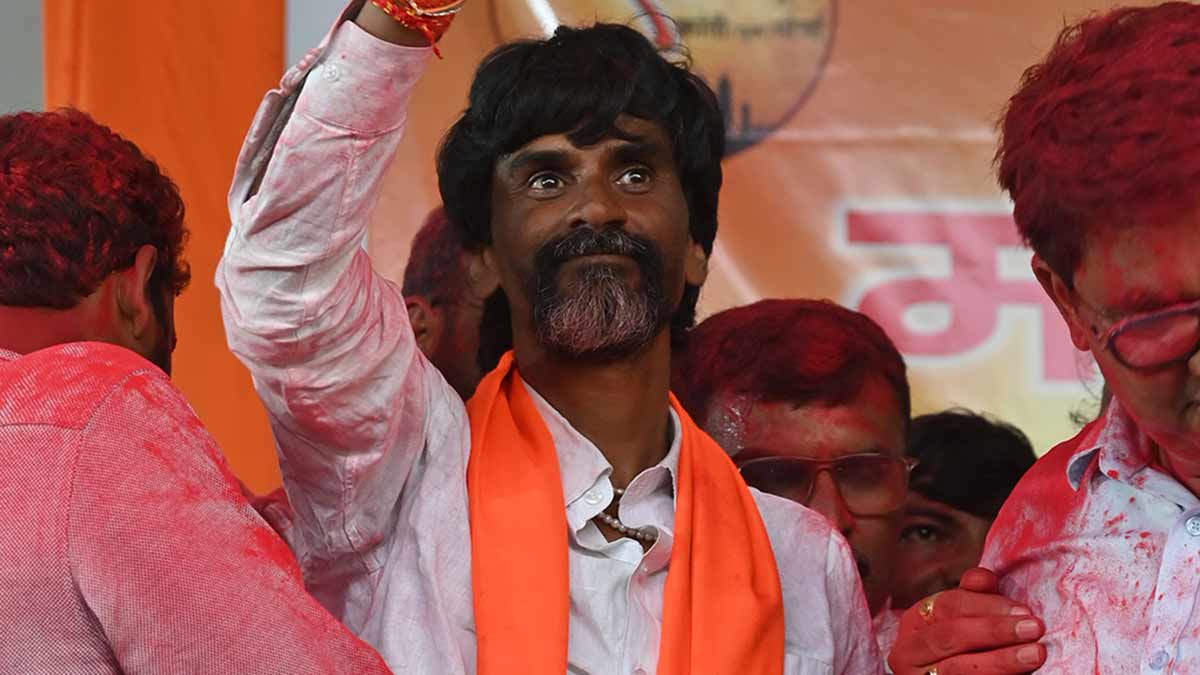The enigma named Manoj Jarange Patil

Recently, Mumbai found itself at the mercy of a wild-eyed, wild-haired political activist, Manoj Jarange Patil, 43, who declared an indefinite hunger strike until his demands were met.
Patil, the strident voice of the Marathas—who make up nearly a third of Maharashtra’s population—managed to paralyse India’s busiest city in the middle of its most celebrated festival: Ganesh Chaturthi. Without getting into the legitimacy of his demands, let’s just say, his methods were highly questionable. The tricky, prickly reservation issue is a sensitive, politically engineered strategy, not unique to Patil and his ilk. But the timing of his protest makes one wonder about his motive. For Mumbaikars, who struggled through traffic jams, closed shops and vanishing workdays, his demands seemed secondary to the colossal disruption.
Patil, a school dropout and former Congress worker, was first spotted helping out in a modest eatery frequented by local politicians. The taste of politics proved addictive. Once considered a leader without prospects, he gradually reinvented himself as the face of Maratha agitation—a community with a complex mix of warrior and agrarian roots. Fifteen years ago, he spearheaded the movement for Maratha reservation, faced lathi charges and steadily turned into a professional protester demanding a Kunbi status and 10 per cent quota for Marathas.
The agitation in Mumbai has catapulted a relatively unknown Patil into the national spotlight. His followers even expected a visit from none other than Union Home Minister Amit Shah, who happened to be at the famed Lalbaugcha Raja Ganpati pandal while Mumbai was gridlocked. Shah, sensibly, didn’t oblige, which was seen as a snub. Patil stepped up the tempo and declared he would stop drinking water if his demands were not immediately met. The ultimatums continued while Mumbaikars fumed at the mayhem let loose by truckloads of young men with saffron scarves impudently bullying commuters and car owners. Schools, colleges, shops hastily shut down in the interests of safety. Mumbai’s overworked, overwhelmed cops and municipal workers valiantly braved heavy rains as they attempted to restore some order.
I was keen to meet the man responsible for the Maratha menace unleashed on the public. Patil is obviously a shrewd tactician. Bundled under a blanket, he played martyr, inaccessible and remote, ready to give up his life for the cause. Mumbai has seen off many such leaders in the past. For a man whose life was made into an adulatory biopic, with seasoned actor-director Makarand Deshpande in the title role, he is behaving like a well-trained thespian, with carefully rehearsed lines, expressions and body language.
The youngest of four brothers, a father of three, Patil still lives with his parents as a display of family commitment. His early years as a victim of agrarian struggle, in a farming family, shaped his resolve to fight for his rights. He sold his land to fund a movement to honour his hero, Shivaji Maharaj.
With a declared net worth of Rs10 lakh, he has positioned himself as a humble warrior for ‘grassroots empowerment’, a message that has clearly struck a chord with his followers.
Patil is active on social media, providing frequent updates and commentary. Patil’s bravado is at a peak when he declares he wont back down “even if shot’’. That is most unlikely, but it makes headlines.
“Marathas are not terrorists,’’ said Uddhav Thackeray. But they did terrorise the average Mumbaikar. Here’s hoping Chief Minister Devendra Fadnavis places Mumbaikars over party politics and resolves the current crisis permanently.
Columns